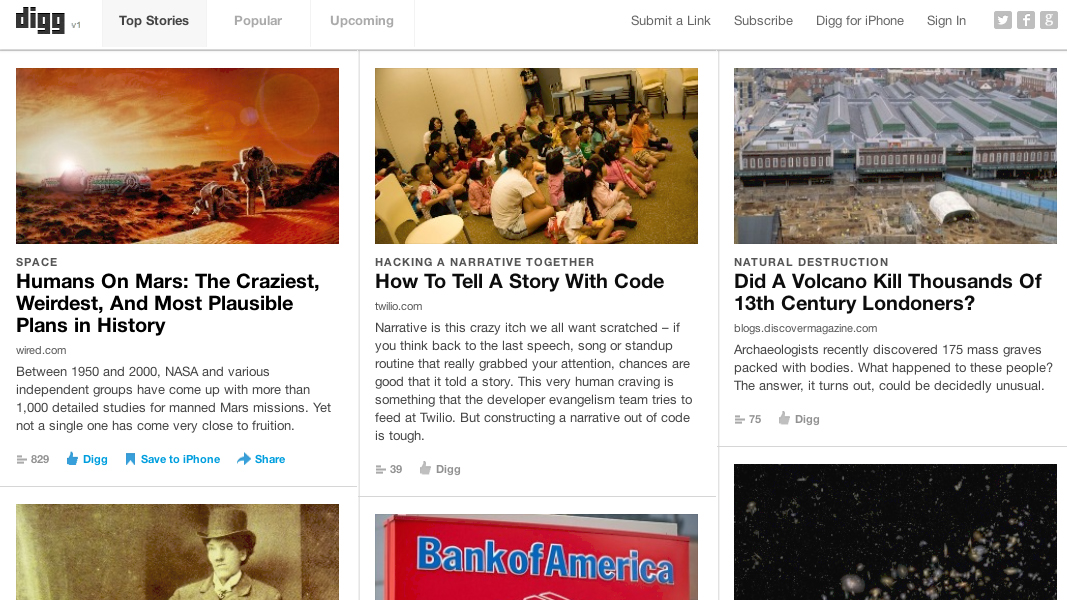Dear Twitter: don't do a Digg
Social networks can easily go from heroes to zeroes

Sign up for breaking news, reviews, opinion, top tech deals, and more.
You are now subscribed
Your newsletter sign-up was successful
For years, if somebody sent you an interesting link it probably came from Digg. The social news service was a superb source of the smartest, funniest and most interesting stuff online.
It was brilliant for web users - going back through my blog archives, it seems that pretty much everything I laughed at in the mid-2000s came via the site - and it was even more brilliant for publishers.
A mention on Digg sent thousands of people to your site, and if you weren't prepared the "Digg effect" could knock your site off the internet altogether.
According to Digg founder Kevin Rose, now at Google, at the height of the site's popularity he was offered, and turned down, $80 million for the site. In 2006, some pundits suggested it was worth more than $200 million.
This week, Digg was sold for half a million dollars.
I hope Twitter's paying attention.
Digg dug
Part of the blame for Digg's decline lies with Google, whose early 2010 change to its algorithm made Digg links less valuable, but almost all of the blame goes to Digg itself. As our publishing director Stuart Anderton noted in late 2010, version 4 of Digg effectively killed the Digg Effect.
Sign up for breaking news, reviews, opinion, top tech deals, and more.
It was "a case study in how to screw up a social site," Anderton explained, noting that: "there was a time when getting a Digg front page would actually crash our servers with the sheer weight of traffic; we had to re-engineer certain parts of the site to cope. That's most certainly no longer the case."
With some irony, Anderton's article made the front page of Digg, and the traffic numbers weren't too impressive. "This article only got about a quarter to a third of the number I'd have expected under Digg 3." Overall, our referrals from Digg dropped 97% year on year.
I wrote about this for .net magazine last year: "If you make it too obvious that the punters are your product, that they're the computerised cows in your online abattoir, they tend to stop mooing and start moving. If enough of them escape, they can bring your entire business crashing down."
That's what Digg did. By aping others and alienating the very people that made it so big, Digg diluted its own special sauce. The result? A valuation that's roughly one four-hundredth of its mid-2000s peak.
Digg's mistake was that it tried too hard to make money, and made the service worse for its users. Twitter appears to be doing something similar: it's starting to make changes that worry developers of third party apps, and it's possible that the very ecosystem that make Twitter a success is under threat.
I understand Twitter's desire to make money, but it's on dangerous ground here. When your success is people-powered, it's important to keep those people on your side. Digg's decline shows what happens when you don't.

Contributor
Writer, broadcaster, musician and kitchen gadget obsessive Carrie Marshall has been writing about tech since 1998, contributing sage advice and odd opinions to all kinds of magazines and websites as well as writing more than twenty books. Her latest, a love letter to music titled Small Town Joy, is on sale now. She is the singer in spectacularly obscure Glaswegian rock band Unquiet Mind.